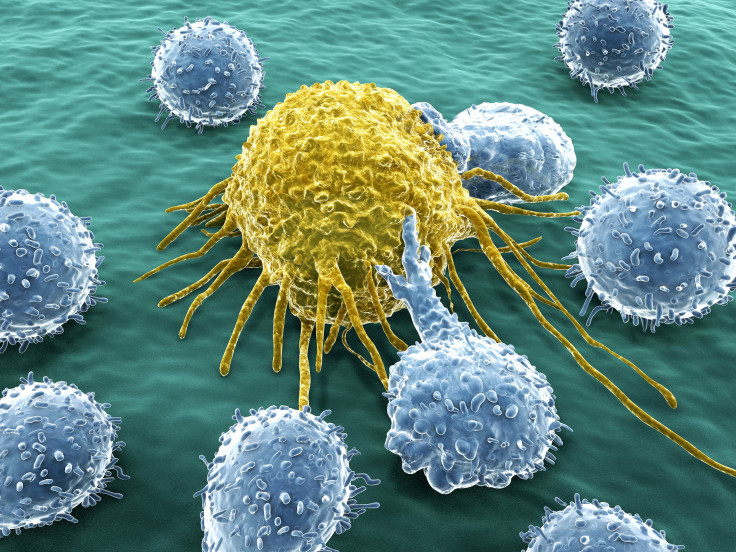The Immune System, In Pill Form: SyAMs May Treat Cancer, HIV, And Autoimmune Diseases

For years, doctors have been trying to mimic the body’s natural immune response to treat an array of diseases the body has trouble fighting on its own. Biologics, a growing field of protein-based therapy treatments utilize synthetic antibodies in order to trigger a more controlled immune response. By creating the “Y” shaped proteins, usually made by white blood cells called plasma, doctors have been able to cause synthetic antibodies to attach themselves to molecules on various invaders within the blood stream and signal other white blood cells to ingest the threat. This method, however, has had its drawbacks, and a new form of technology may be the answer to fighting illnesses like cancers, infections, and autoimmune diseases, on the molecular level.
David Spiegel and his team at Yale University recently sought to test an alternative to synthetic antibodies in their recent study published in the Journal of American Chemical Society. As antibodies often prove to be large and can only be administered intravenously, Spiegel and colleagues hoped to find something that could be absorbed through the gastrointestinal tract. The answer: “SyAMs” or “synthetic antibody mimics” that behave like antibodies but are one-twentieth their size.
According to Spiegel, SyAMs are able to bind to both diseased cells and disease-fighting cells in order to trigger a natural immune response. Spiegel specifically conducted his study on prostate cancer cells, finding the SyAMs were successful in targeting a specific antigen on the disease, and activating other immune cells to devour the intruder.
Yale researchers are very optimistic about the finding, citing the many positives of SyAM therapy. Spiegel elaborates on the misgivings of current antibody therapies, stating, “Because antibodies are proteins they’re difficult and expensive to produce on a large scale, can cause unwanted immune reactions, and tend to aggregate and denature with long-term storage.” SyAMs, on the other hand, are less likely to illicit an adverse immune response, and are cheaper and easier to produce. Like most drugs, Speigel is able to create the SyAMs using various chemical reactions to create structures not found in nature. As SyAMs are created like conventional drugs, it is more likely they will be able to be taken orally like other medications. This may prove immensely beneficial to patients with cancers, autoimmune diseases, and multiple sclerosis currently undergoing other forms of antibody therapies.
According to Scientific American, treatments using antibodies has a long history that has made substantial advancements in recent years. The most widely used antibody treatment today has been the use of monoclonal antibodies, produced by natural means in a lab and administered intravenously. This therapy has been found to shrink seven different types of cancer and could possibly be used for treating HIV as well.
SyAMs are the latest in antibody treatment and may be used to fight various other cancers, HIV, and bacterial triggers of autoimmune disease as well, all in a smaller package. Laura Kiessling of the University of Wisconsin-Madison, another researcher of antibody response to tumor cells, finds promise in the treatment, saying, “It can be tailored to selectively recruit specific types of immune cells to kill tumor cells. The smaller size of the compounds could also be an asset in eliminating tumors, but the benefits would need to be looked at in vivo.”
Even though SyAMs are still in the beginning stages of development, a mouse model has been designated for the near future, and human studies will soon follow. Speigel and his team seem hopeful that SyAMs will be the future of antibody-like treatments, with unprecedented and unlimited beneficial potential.
Source: Spiegel D, Fitzgerald K, Zhang A, et al. Chemically Synthesized Molecules with the Targeting and Effector Functions of Antibodies. Journal of the American Chemical Society. 2015.
Published by Medicaldaily.com



























